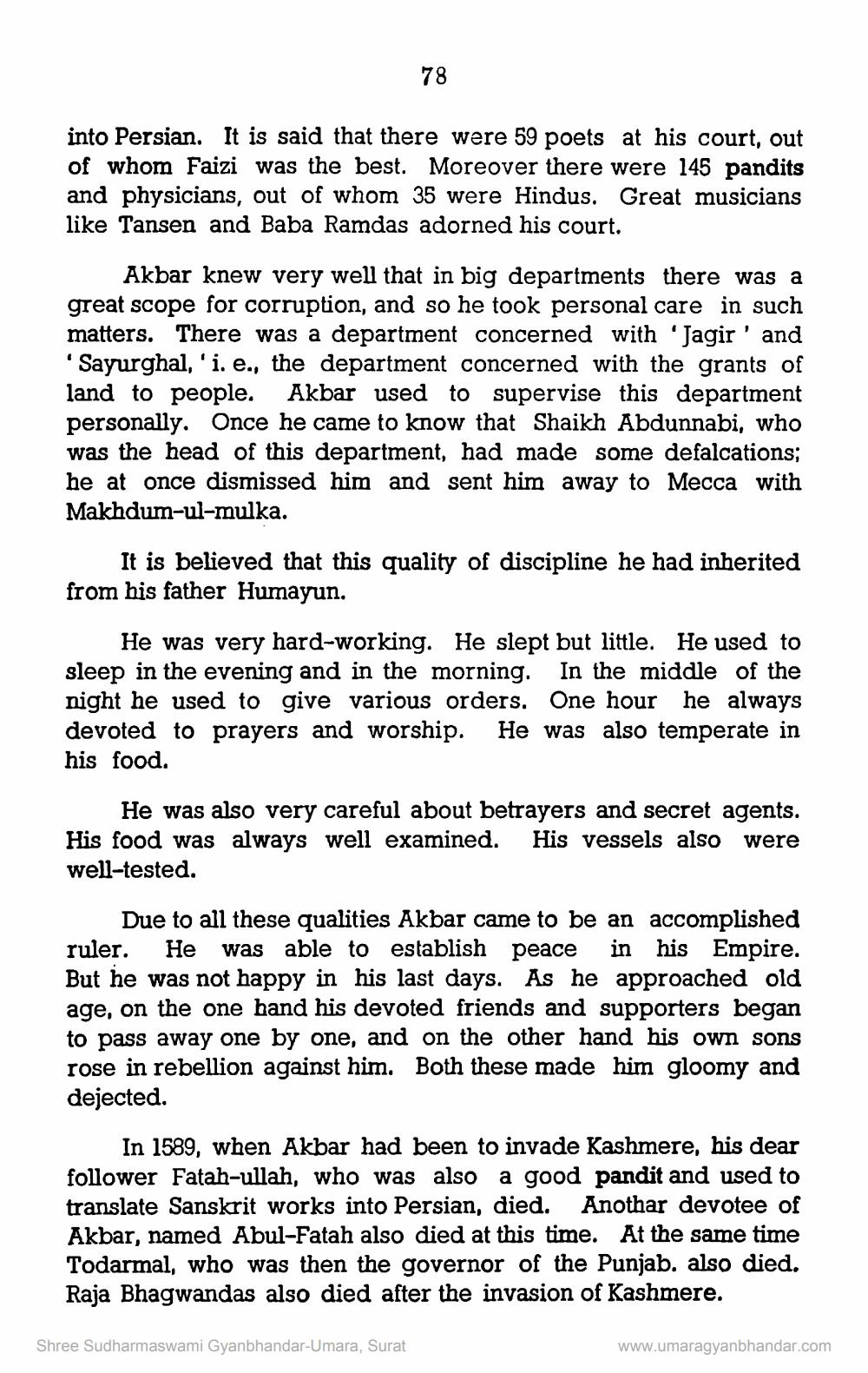________________
78
into Persian. It is said that there were 59 poets at his court, out of whom Faizi was the best. Moreover there were 145 pandits and physicians, out of whom 35 were Hindus. Great musicians like Tansen and Baba Ramdas adorned his court.
Akbar knew very well that in big departments there was a great scope for corruption, and so he took personal care in such matters. There was a department concerned with 'Jagir' and 'Sayurghal,'i. e., the department concerned with the grants of land to people. Akbar used to supervise this department personally. Once he came to know that Shaikh Abdunnabi, who was the head of this department, had made some defalcations; he at once dismissed him and sent him away to Mecca with Makhdum-ul-mulka.
It is believed that this quality of discipline he had inherited from his father Humayun.
He was very hard-working. He slept but little. He used to sleep in the evening and in the morning. In the middle of the night he used to give various orders. One hour he always devoted to prayers and worship. He was also temperate in his food.
He was also very careful about betrayers and secret agents. His food was always well examined. His vessels also were well-tested.
Due to all these qualities Akbar came to be an accomplished ruler. He was able to establish peace in his Empire. But he was not happy in his last days. As he approached old age, on the one hand his devoted friends and supporters began to pass away one by one, and on the other hand his own sons rose in rebellion against him. Both these made him gloomy and dejected.
In 1589, when Akbar had been to invade Kashmere, his dear follower Fatah-ullah, who was also a good pandit and used to translate Sanskrit works into Persian, died. Anothar devotee of Akbar, named Abul-Fatah also died at this time. At the same time Todarmal, who was then the governor of the Punjab. also died. Raja Bhagwandas also died after the invasion of Kashmere.
Shree Sudharmaswami Gyanbhandar-Umara, Surat
www.umaragyanbhandar.com




